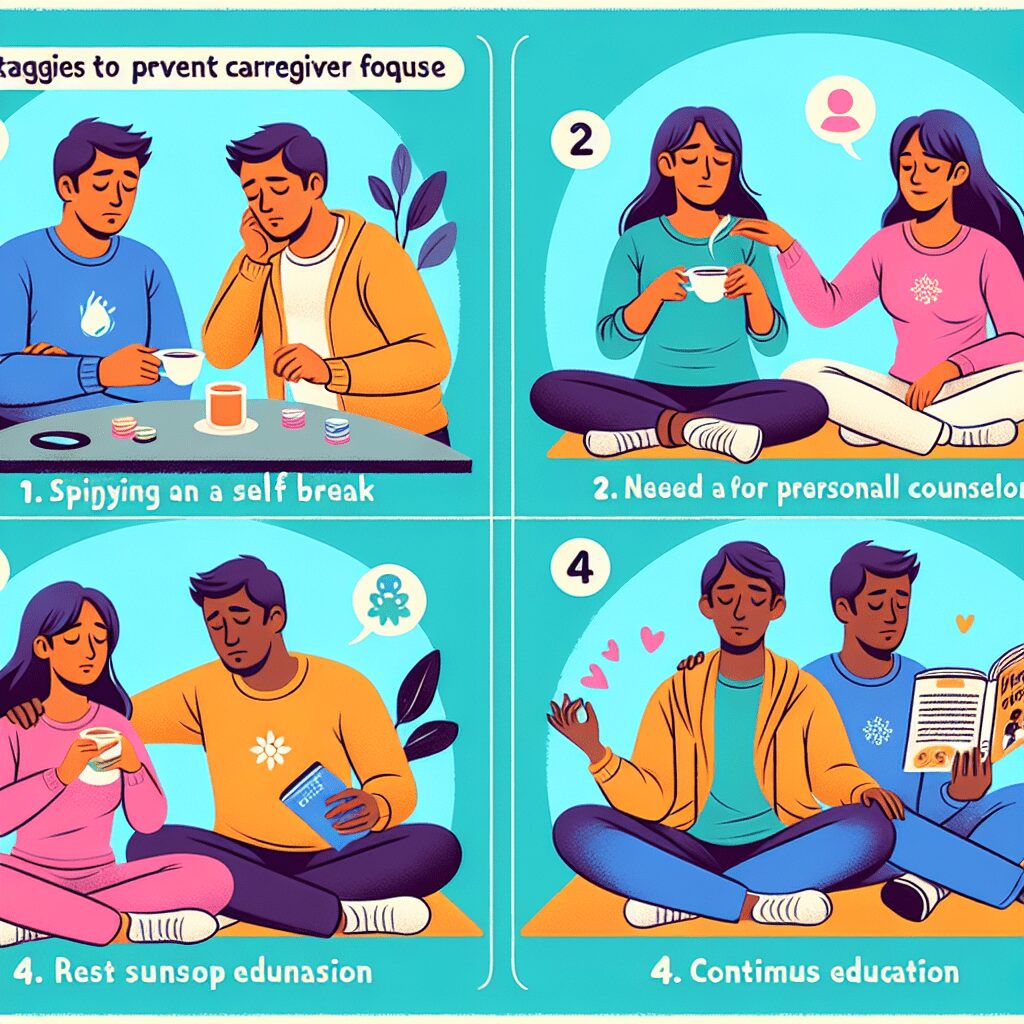Beating Burnout: Essential Tips for Caregivers of Family Members with Mental Health Challenges
Caring for a family member with mental health challenges can be profoundly rewarding yet incredibly taxing. Balancing the emotional and physical demands often leads to feelings of exhaustion and burnout. Awareness of this struggle is the first step toward finding effective coping strategies. Here’s a guide filled with practical tips to help caregivers navigate their journey and reclaim their wellbeing.
Understanding Burnout in Caregiving
Burnout manifests as emotional, physical, and mental exhaustion and can result from prolonged and excessive stress. Caregivers may feel drained, overwhelmed, and unable to meet the demands of their loved ones. This can lead to frustration, resentment, or even a sense of isolation. It’s crucial to recognize these feelings to address them effectively and prevent long-term repercussions.
Why Burnout Happens
Caregivers often prioritize the needs of their loved ones above their own. This selflessness is admirable but can easily lead to neglecting personal health. Inadequate time for self-care, constant worry about the family member’s wellbeing, and the emotional toll of witnessing a loved one’s struggles contribute significantly to caregiver burnout. Understanding these dynamics helps identify necessary changes in caregiving strategies.
Who Experiences Burnout?
While anyone involved in caregiving can experience burnout, those supporting individuals with severe mental health challenges may be particularly vulnerable. Parents, spouses, siblings, and even adult children often report feeling the weight of responsibility and the emotional demands of being a caregiver. Acknowledging this shared experience fosters a sense of community, allowing caregivers to seek support and share coping strategies.
What Does Burnout Look Like?
Burnout manifests in various ways, including:
- Emotional Exhaustion: Feelings of being drained and unable to cope.
- Detachment: A sense of disconnection from the loved one and their needs.
- Irritability: Increased frustration over minor situations.
- Physical Symptoms: These may include headaches, digestive problems, and sleep disturbances.
- Social Withdrawal: Avoiding friends or activities once enjoyed.
- Neglected Responsibilities: Dropping the ball on personal health or work tasks.
- Hopelessness: Feelings of despair or seeing no end to the situation.
- Reduced Self-Care: Ignoring personal health and wellbeing.
- Difficulty Concentrating: Finding it hard to focus on tasks.
- Feelings of Guilt: Worrying that you’re not doing enough for your loved one.
Recognizing these signs enables caregivers to take proactive measures before burnout entrenches further into their lives.
Where to Seek Support
Support can come from various sources. Local and online support groups specifically for caregivers can provide a safe space to share experiences and strategies. Mental health professionals can also offer guidance and coping mechanisms tailored to individual circumstances. Engaging with community resources, such as workshops or seminars, can provide valuable education and training.
When to Take Action
Taking action sooner rather than later is crucial. If feelings of burnout arise, address them immediately. Small changes can make a significant difference—these changes can include setting boundaries, allowing for personal "me time," or seeking additional help. Regular check-ins with oneself can help gauge emotional and physical wellbeing.
How to Use Effective Coping Strategies
Implementing practical self-care strategies can significantly alleviate caregiver burnout. Here are some helpful ideas:
- Set Boundaries: Clearly define your limits to prevent overextension.
- Engage in Regular Exercise: Physical activity releases endorphins and boosts mood.
- Practice Mindfulness: Techniques like meditation can foster relaxation.
- Prioritize Sleep: Establishing a solid sleep routine is vital for rejuvenation.
- Seek Professional Help: A therapist can provide valuable support and coping techniques.
- Connect with Other Caregivers: Building a network can offer emotional support.
- Establish a Routine: Consistency can create a sense of control.
- Enjoy Hobbies: Rediscovering interests can offer necessary mental breaks.
- Use Technology Wisely: Employ apps that remind you to take breaks or connect with peers.
- Celebrate Small Wins: Recognize progress in your caregiving journey, no matter how small.
These strategies can help create balance and prevent burnout from overwhelming your caregiving experience.
Opinions and Comparisons
Many caregivers emphasize the importance of community and understanding. Online forums and local meet-ups often provide a listening ear and practical advice born from experience. Comparing your situation with others may reveal new techniques you hadn’t considered before. It’s empowering to learn that you’re not alone, and that many have walked similar paths and found ways to thrive.
Adopting these coping mechanisms doesn’t merely mitigate burnout; they nurture resilience. Ultimately, whatever the circumstances, caring for yourself should always remain a top priority.
FAQs
-
What are early signs of caregiver burnout?
- Early signs include feeling overly tired, irritable, and making excuses to avoid activities.
-
What strategies can I employ for self-care?
- Prioritize exercise, mindfulness, social connections, and professional support as keys to effective self-care.
-
Is it normal to feel guilty for needing time to myself?
- Yes, many caregivers experience guilt, but remember that self-care is essential for effective caregiving.
-
Can talking to other caregivers help with burnout?
- Absolutely! Connecting with others in similar situations can provide support, understanding, and valuable strategies.
- When should I seek professional help for my burnout?
- If you find it challenging to cope with daily tasks or experience persistent negative emotions, it’s wise to consult a mental health professional.
Disclaimer: As an Amazon Associate, I earn from qualifying purchases. I may earn a commission from qualifying purchases as an affiliate. Please note that I only recommend products I believe will provide value to my readers.









